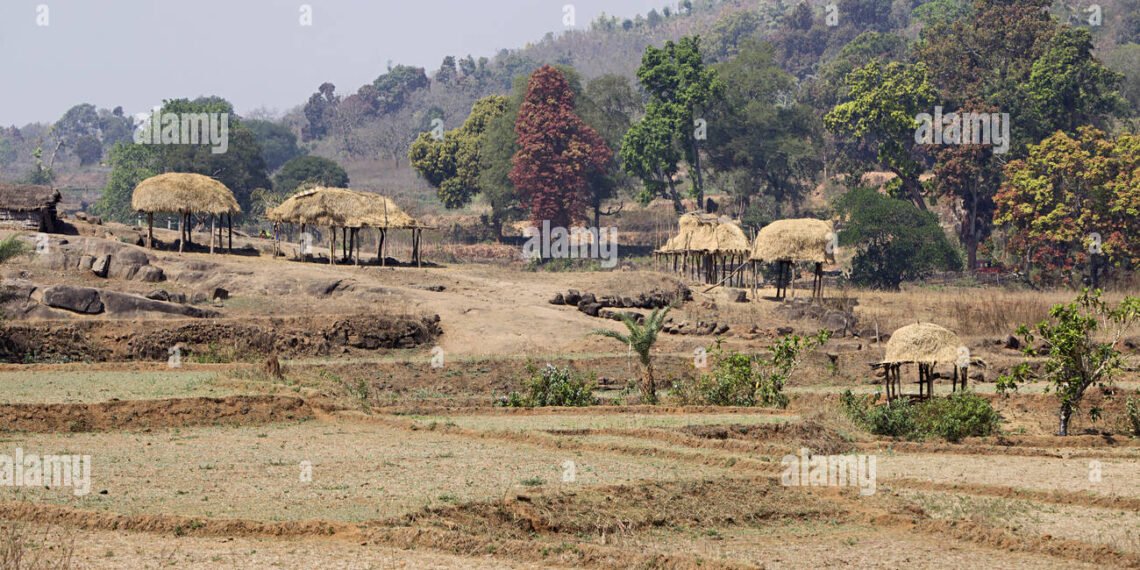Orissa High Court raps Keonjhar revenue officials for unauthorized land transfers involving SC women, calls it a case of fraud and institutional failure.
BY PC Bureau
July 23, 2025 — In a significant ruling that underscores the vulnerability of Scheduled Caste communities in land transactions, the Orissa High Court has ordered a thorough investigation into the unauthorized transfer of tribal land in Keonjhar district. The court directed the district Collector to conduct a formal inquiry into what it termed “willful administrative lapses” by revenue officials, and to initiate disciplinary proceedings against those found guilty.
Justice Dr. S.K. Panigrahi, while delivering the judgment, expressed alarm over how ancestral land belonging to Scheduled Caste co-parceners was sold and mutated in favour of a private individual without proper legal scrutiny or consultation with the rightful stakeholders.
“Permissions for the sale of coparcenary property were granted without adequate verification, and revenue entries were altered without notifying or obtaining consent from all interested parties,” the judge noted.
The court observed that the entire transaction appeared to have been carried out with undue haste, with no effort made to assess the legal status of the land, the financial capability of the buyer, or the consent of the co-parceners—many of whom are vulnerable SC women from impoverished backgrounds.
Justice Panigrahi further remarked that the actions of the revenue officials went beyond negligence and indicated possible institutional complicity or deliberate oversight. He termed the failure to follow due process as a “gross abdication of statutory duties” and called for judicial scrutiny.
“These administrative lapses, viewed together, raise a reasonable apprehension of institutional complicity, or at the very least, willful blindness. The machinery of governance has failed those it was meant to protect,” the judgment stated.
READ: Bihar Opposition Ready for “Do or Die” on SIR Issue, May Boycott Poll
The court was particularly critical of how revenue authorities—tasked with upholding the rights of marginalized communities—failed in their duty and instead facilitated the illegal dispossession of SC landowners.
Violation of Constitutional and Legal Safeguards
The High Court held that the sale and mutation process amounted to a violation of protective statutes enacted to shield Scheduled Caste communities from land alienation. It said the process reeked of illegality, fraud, and abuse of official power.
Orissa High Court orders CBI probe into fake insurance claim cases in Keonjhar#Keonjhar #Odisha https://t.co/YlVKHmCxXK
— OTV (@otvnews) July 20, 2023
The judgment declared that the petitioners—SC women who were co-parceners—could not be lawfully dispossessed of their ancestral land through covert and coercive means carried out behind their backs.
“If landholding SC co-parceners are not restored to their rightful possession, and if such practices are allowed to continue unchecked, the very intent of protective laws stands subverted,” Justice Panigrahi warned.
The court’s ruling serves as a strong message to state authorities about their responsibilities in Scheduled Areas and underlines the need for administrative vigilance to prevent exploitation by socially or economically dominant entities.
READ:Goa, a Paradise Lost to Drugs and Alcohol
Concluding the verdict, the judge emphasized the need for legal intervention to uphold constitutional values and social equity.
“The law must intervene to uphold justice, prevent dispossession, and reinforce the constitutional promise to historically marginalized communities,” the judgment concluded.
The court has directed the Keonjhar Collector to submit a detailed inquiry report and take corrective steps, including initiating disciplinary action against the erring officials involved in the illegal transaction.














